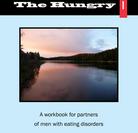WWII and Learning from Matt Nathanson
by Barbara Lawrence on 06/29/11
June 29, 2011
Dunkirk and Back:
The photograph above of my mother and uncle when they were in their 20s about to go to war, started me thinking about what their lives were like, and how different they were from my own at the same age, or from the lives of 20-somethings in 2011. Each generation faces its own challenges, few of them of its own making. The challenge today may be to remain sane in a culture gone mad, to create deep relationships in a culture that favors quantity over quality, to excel in a culture that “celebrates mediocrity,” to find your passion, hone your craft, and be as good at something or several somethings as you can be. We are also at war: the drug war, the war on poverty, the wars in Iraq and Afghanistan, but we often seem at war with ourselves because we have created a culture that promotes anger and brutality.
I recently attended the ceremony at Proctor Academy when one of my nephews graduated. I’m really glad I did. I got to hear singer/songwriter Matt Nathanson give the best graduation speech I’ve ever heard - and as a teacher, professor, parent, and aunt, I’ve been to a lot of them. You can hear it too by going to the Proctor website (http://www.proctoracademy.org/) and looking for Proctor in Motion: Matt Nathanson.
Matt told us - and everyone young and old was listening - identify your passion, work at your craft, enjoy being uncomfortable because that’s when you will learn, know yourself, and excel, not in acquiring possessions or numbers of friends, but in your passion, as your best self. It’s a wonderful reminder to me every day that when I sit in front of my computer and write, edit, re-write, re-edit, I am trying to know myself. Doing this makes me very uncomfortable at times, but I’m learning to get better at this craft, and I hope I can continue to do so for the rest of my life.
I'm working on a book about my British family during WW II. I've been doing that for over a year and a half. Today I tried again to find my mother’s visa that allowed her to leave Great Britain in January, 1941, a time when the only women between the ages of 16 and 60 who were permitted to leave were escorts of young children. I wonder when did my mother decided to leave Great Britain? Did she leave because she had been injured because she was so near an exploding bomb that she lost the capacity to hear out of one ear? Did she leave because she was in love with a young American pilot, which she may have been, or because her brother had almost died at Dunkirk and her parents forced to to flee. How did she feel boarding the Warwick Castle in Glasgow and sailing First Class though through dangerous waters to safety? Why was she allowed to leave, and why was she traveling with 5 members of a successful Jewish family? I don’t know, but I’m trying to find out.
This portion of my blog - the BLUE BLOG - will be about my search for my family during World War II, because I want to know them better than I did, and about how you can search for where you came from because it is a way to know yourself.
So - let’s start with a truth - if you aren’t already the older generation, as I am, now is the time to talk, more important to listen, to your older relatives. Your first assignment, should you choose to accept it, is to call, write or visit an older relative and ask what his or her life was like when he or she was your age. Please let me know what you find out.


